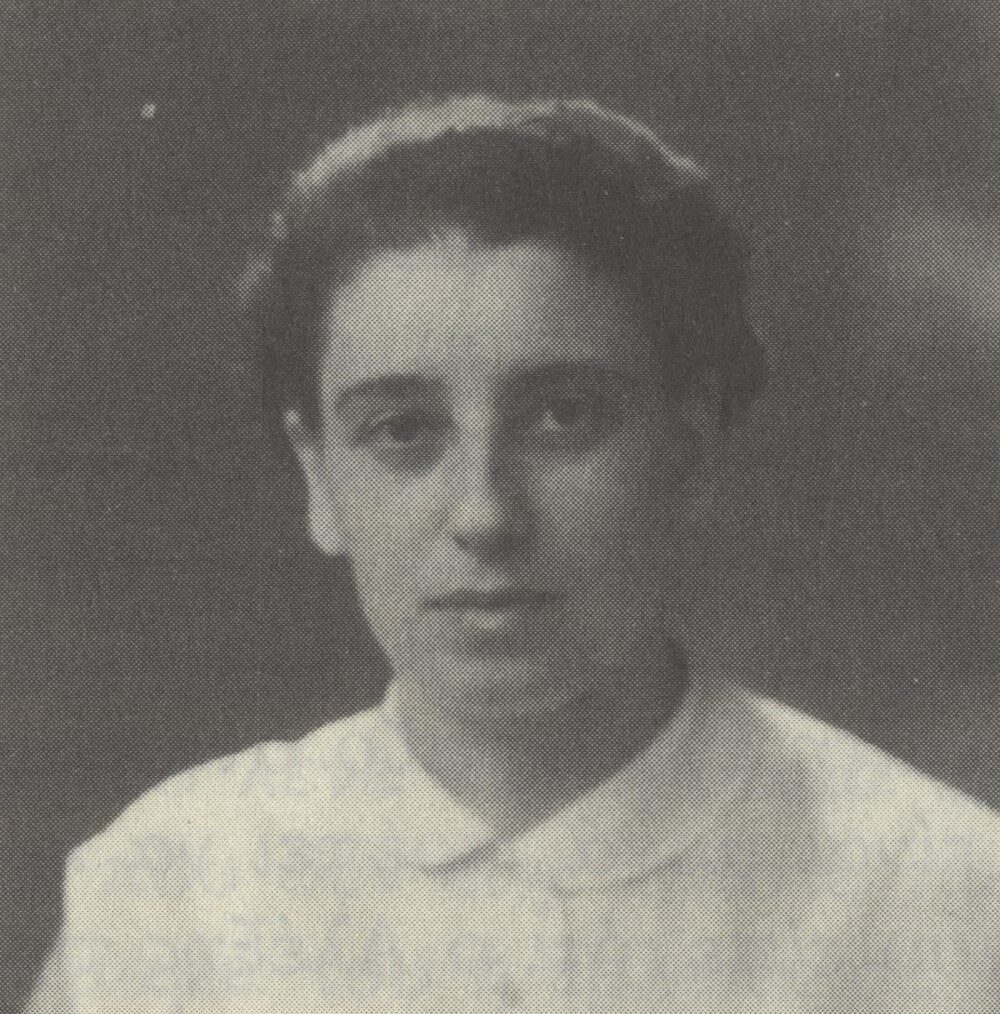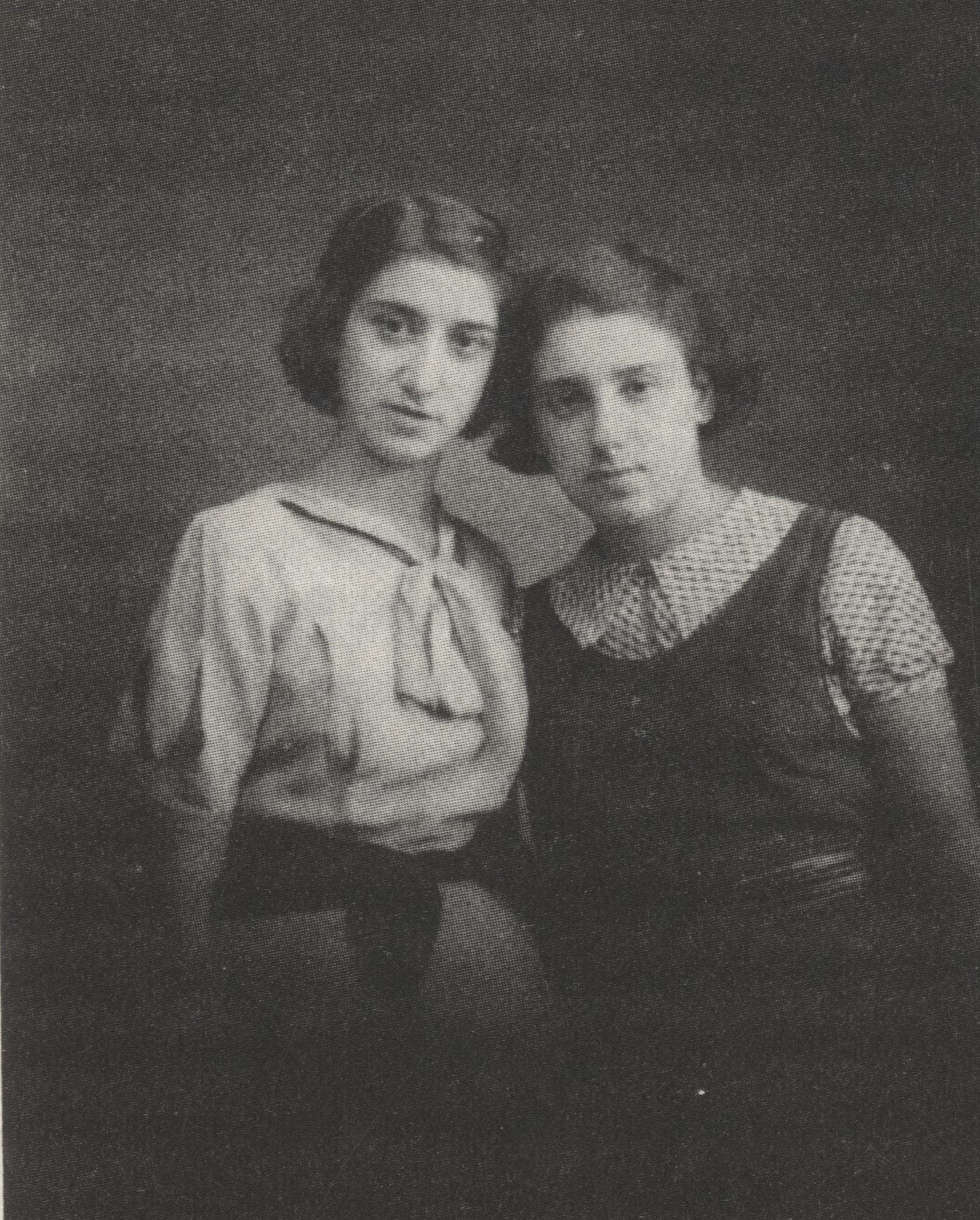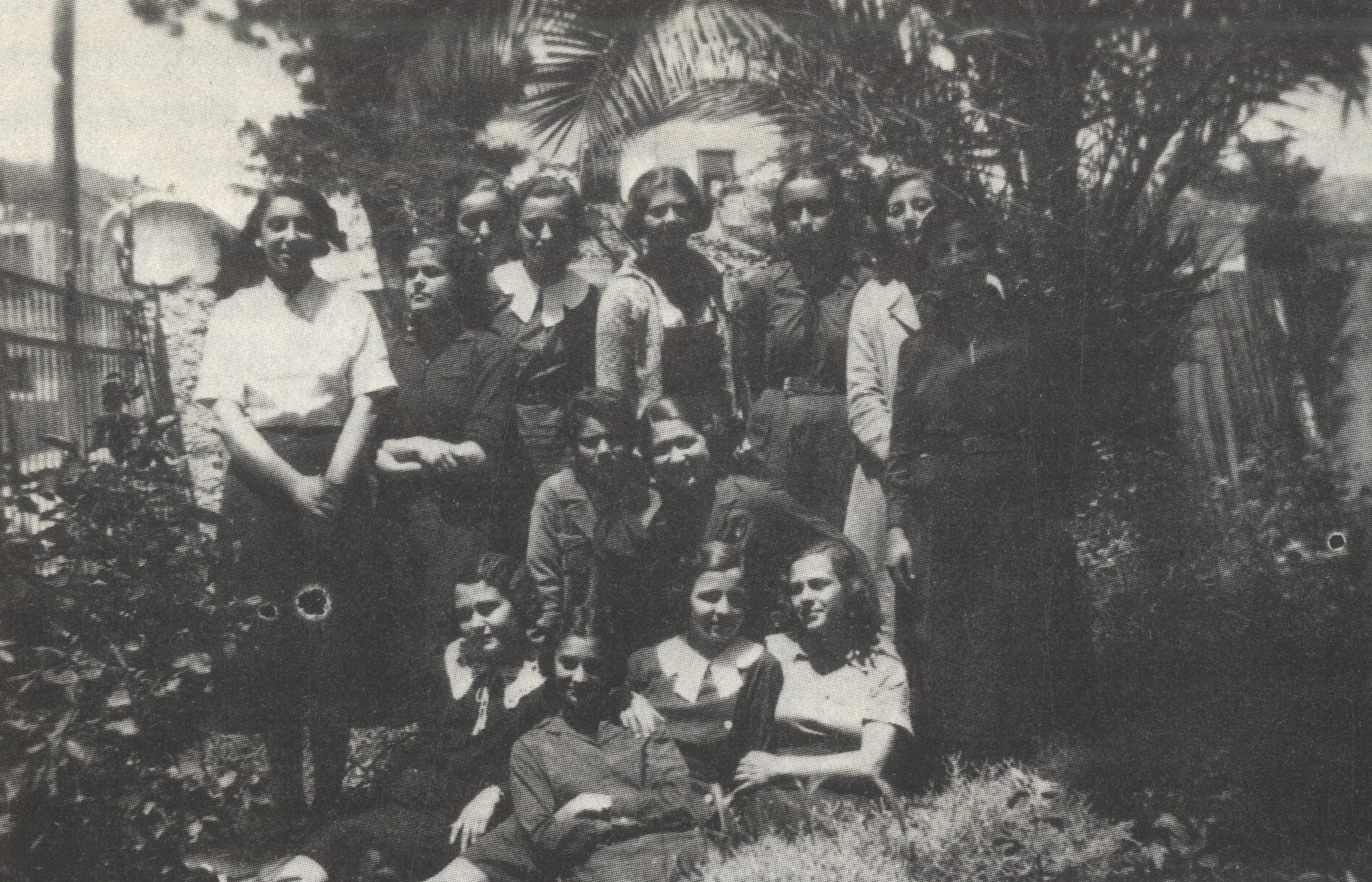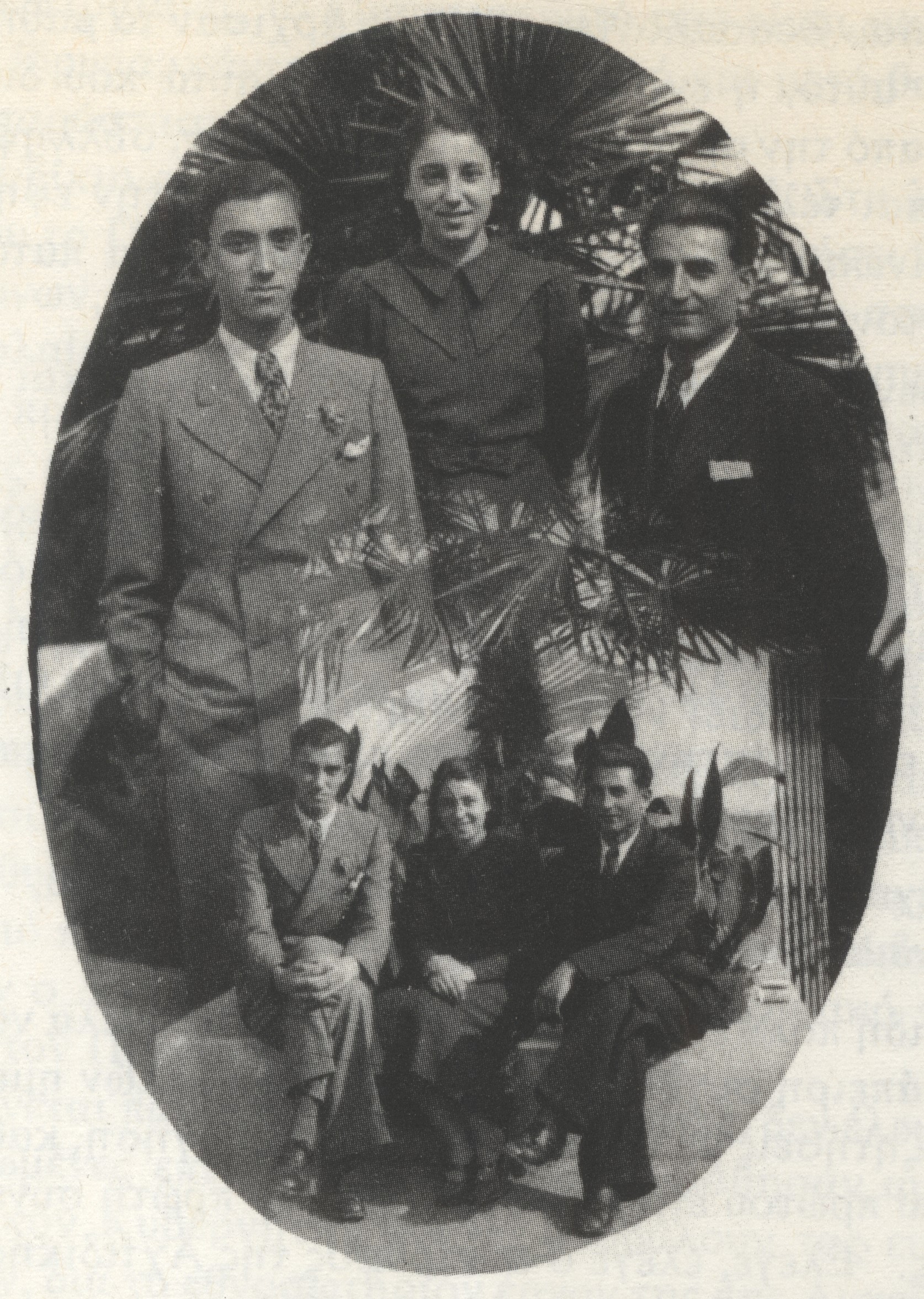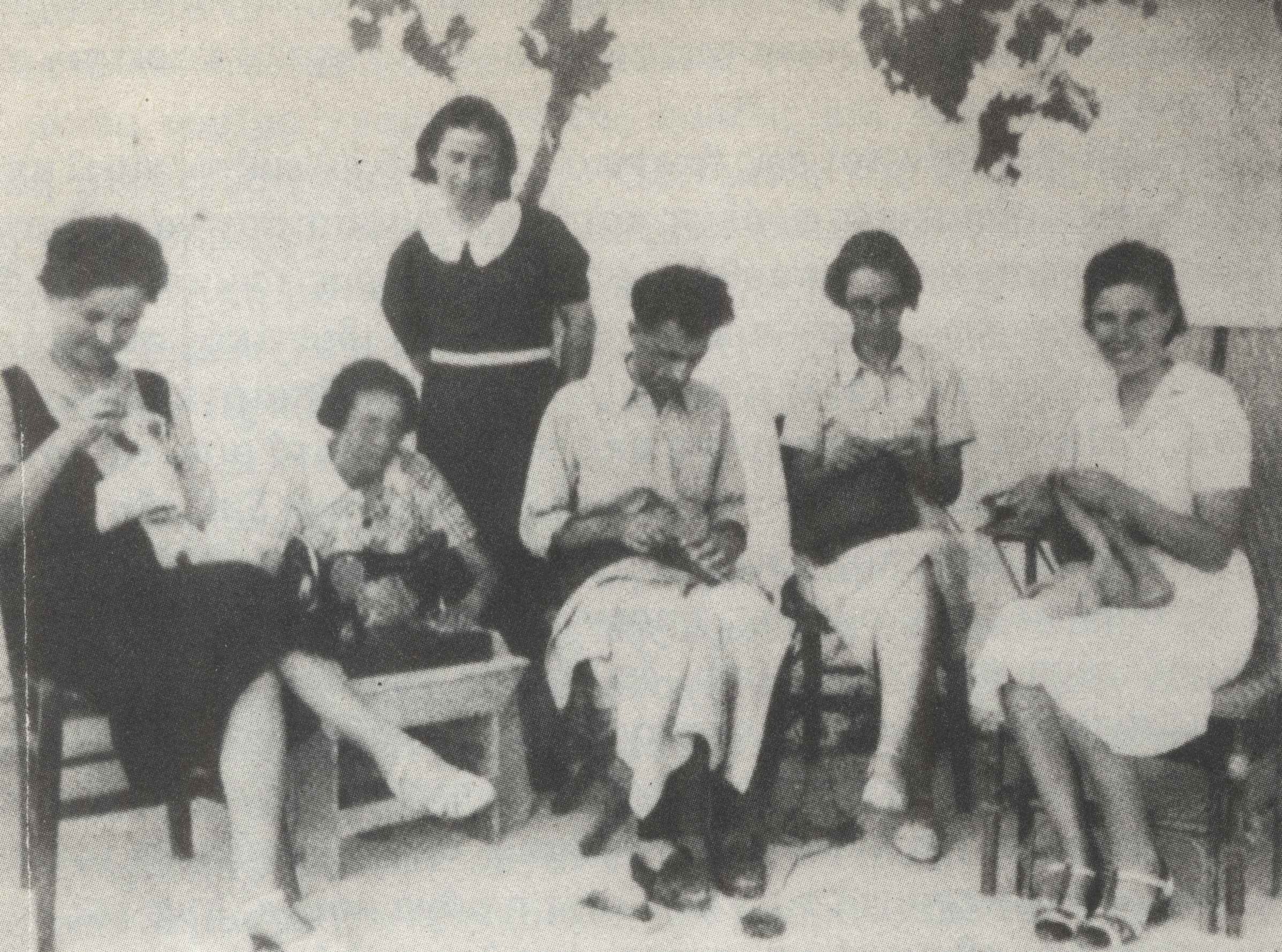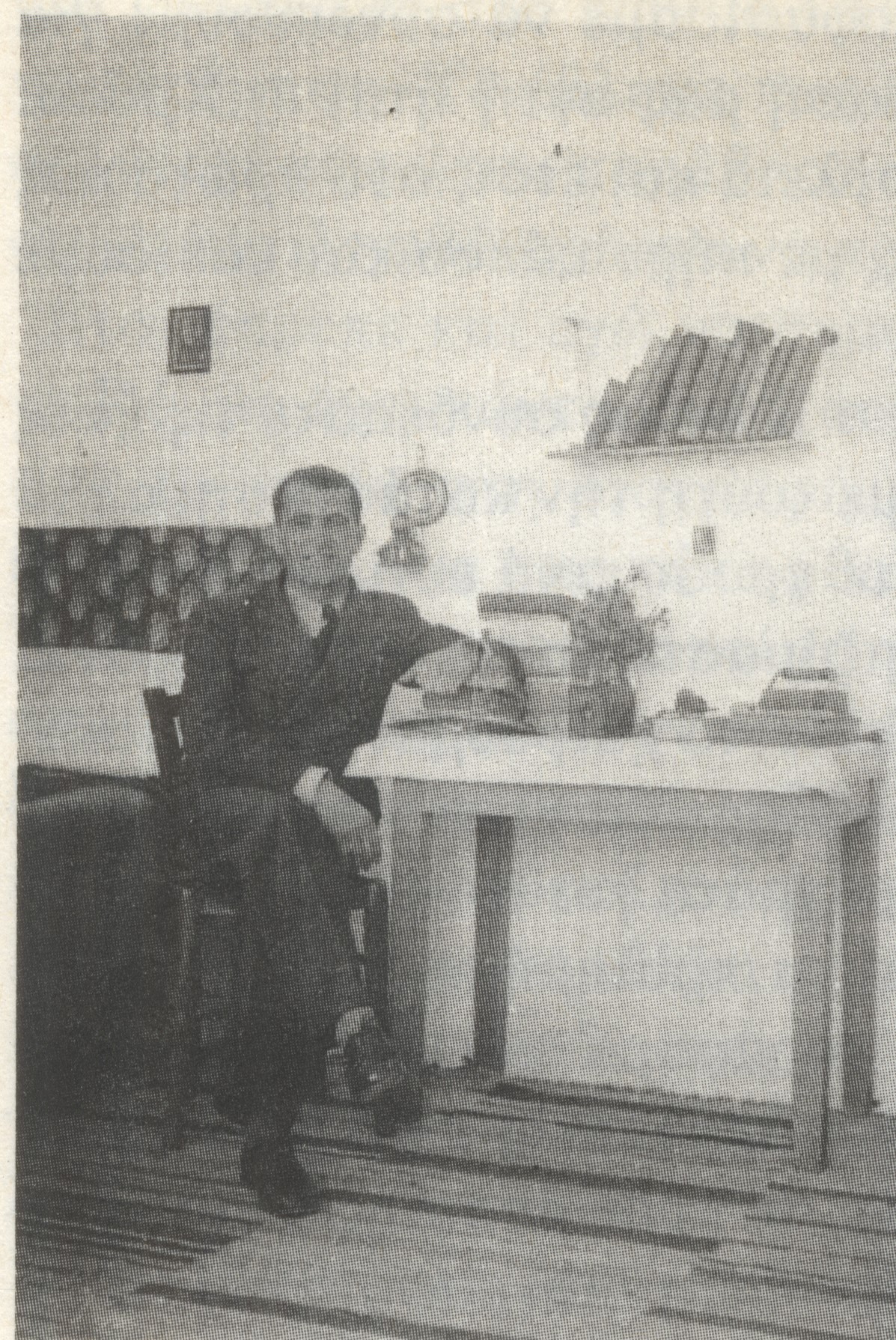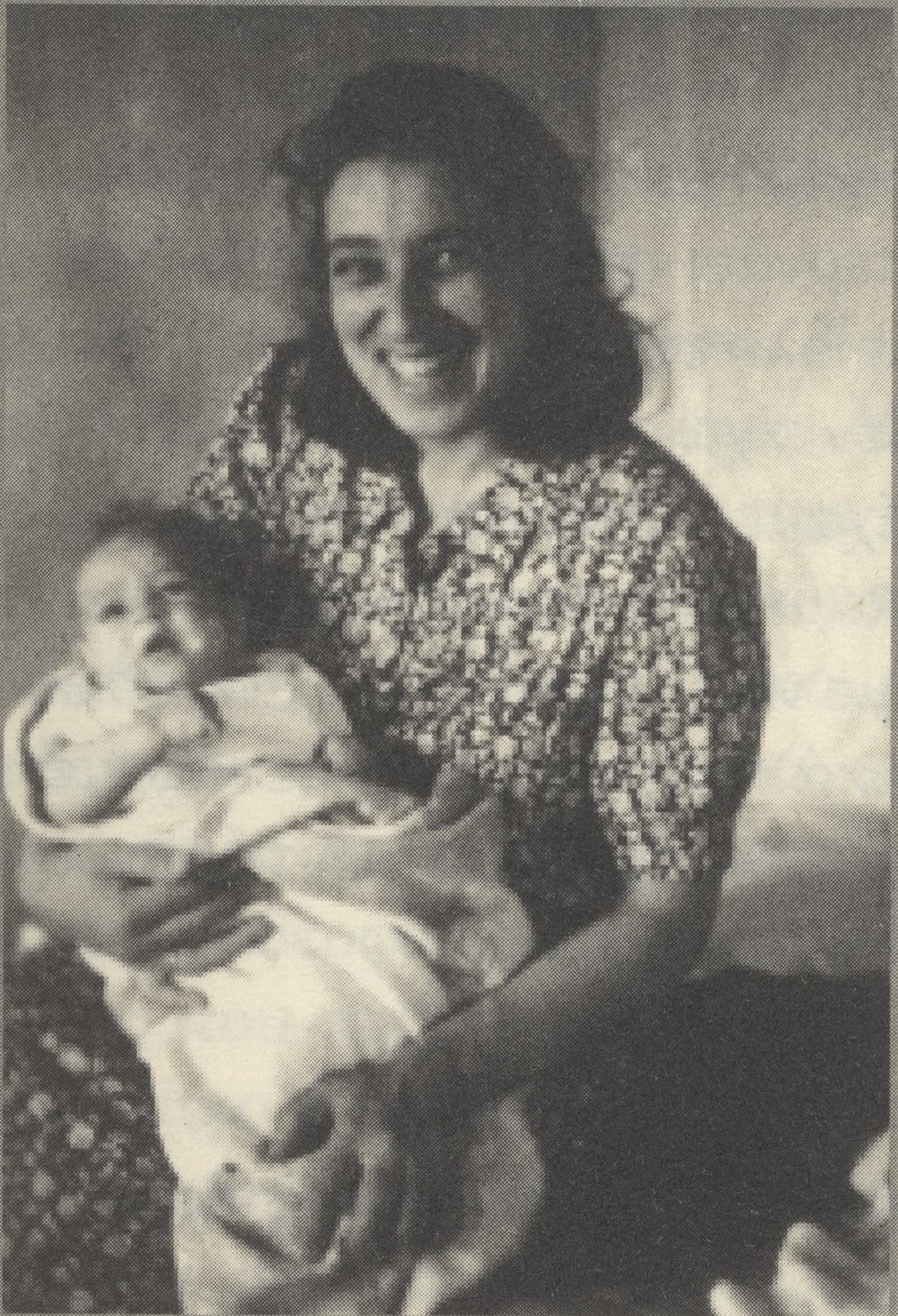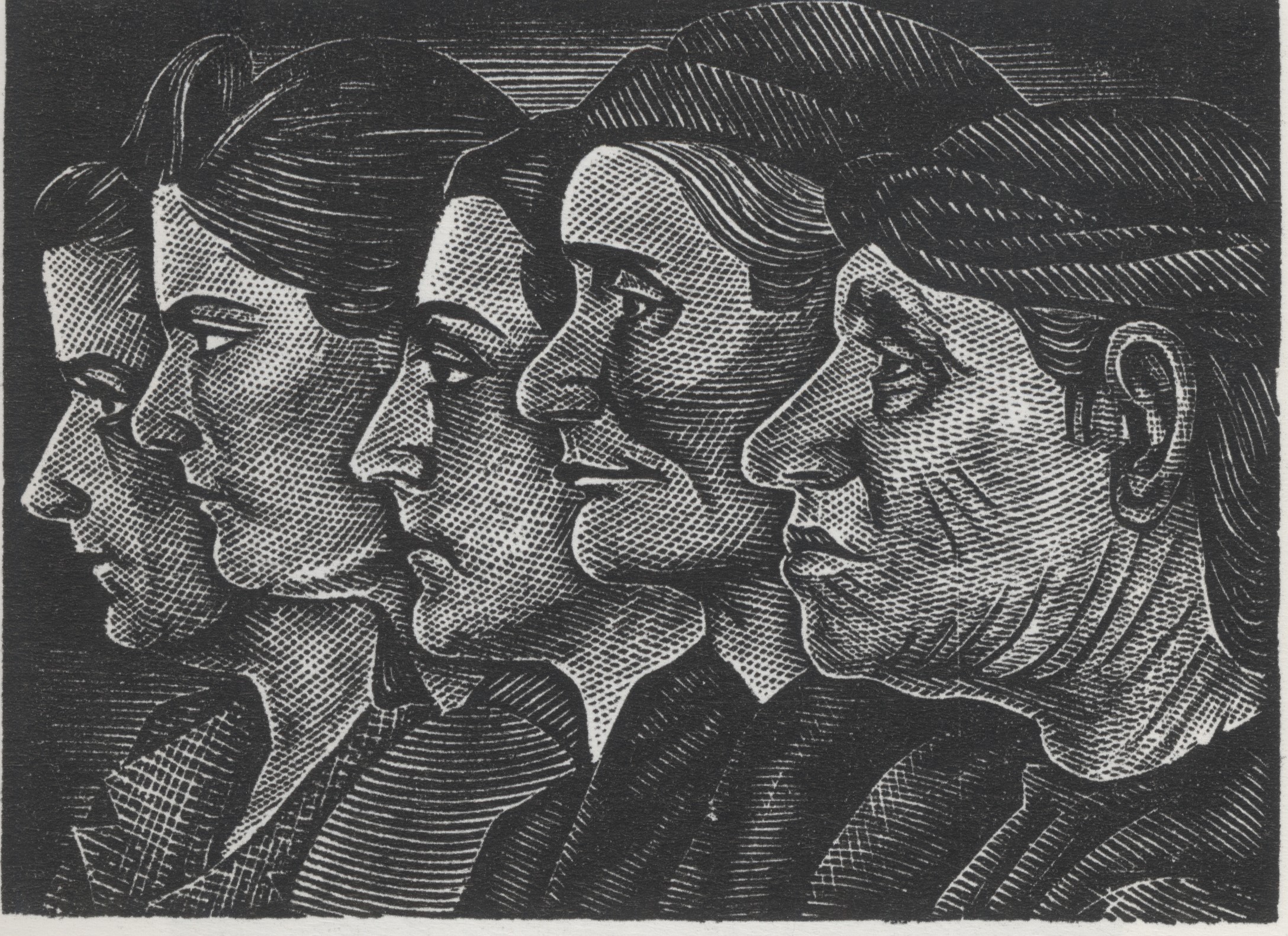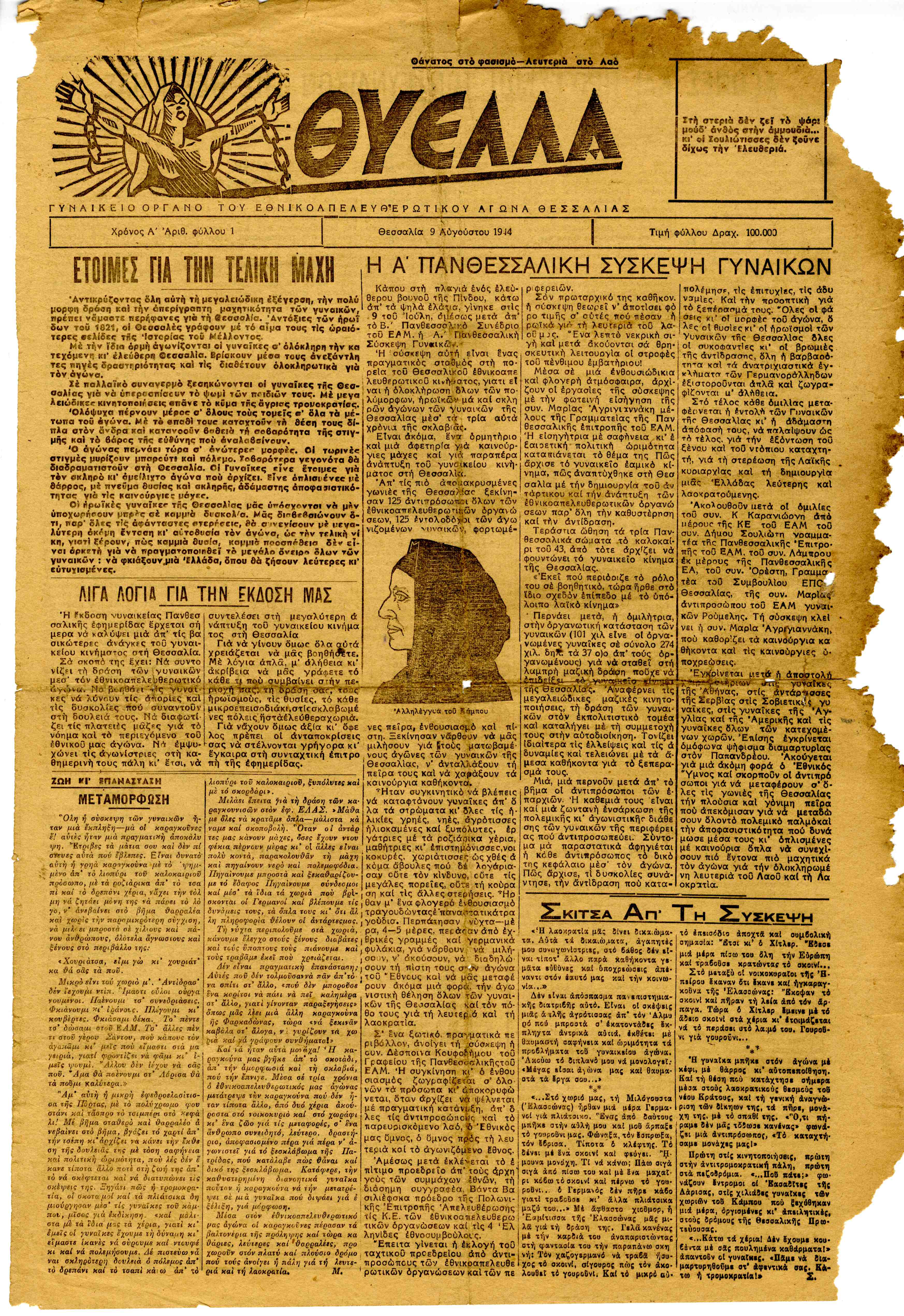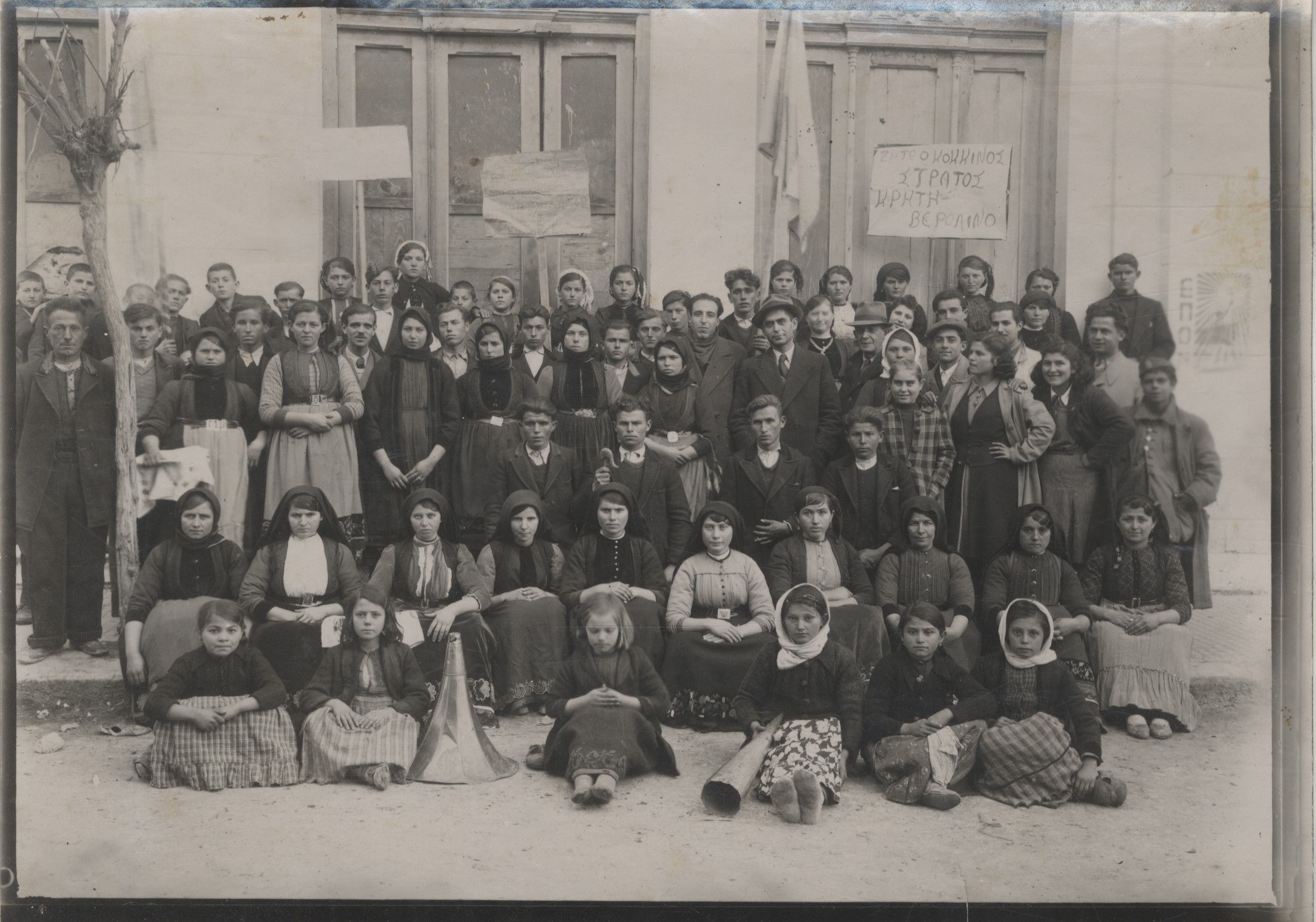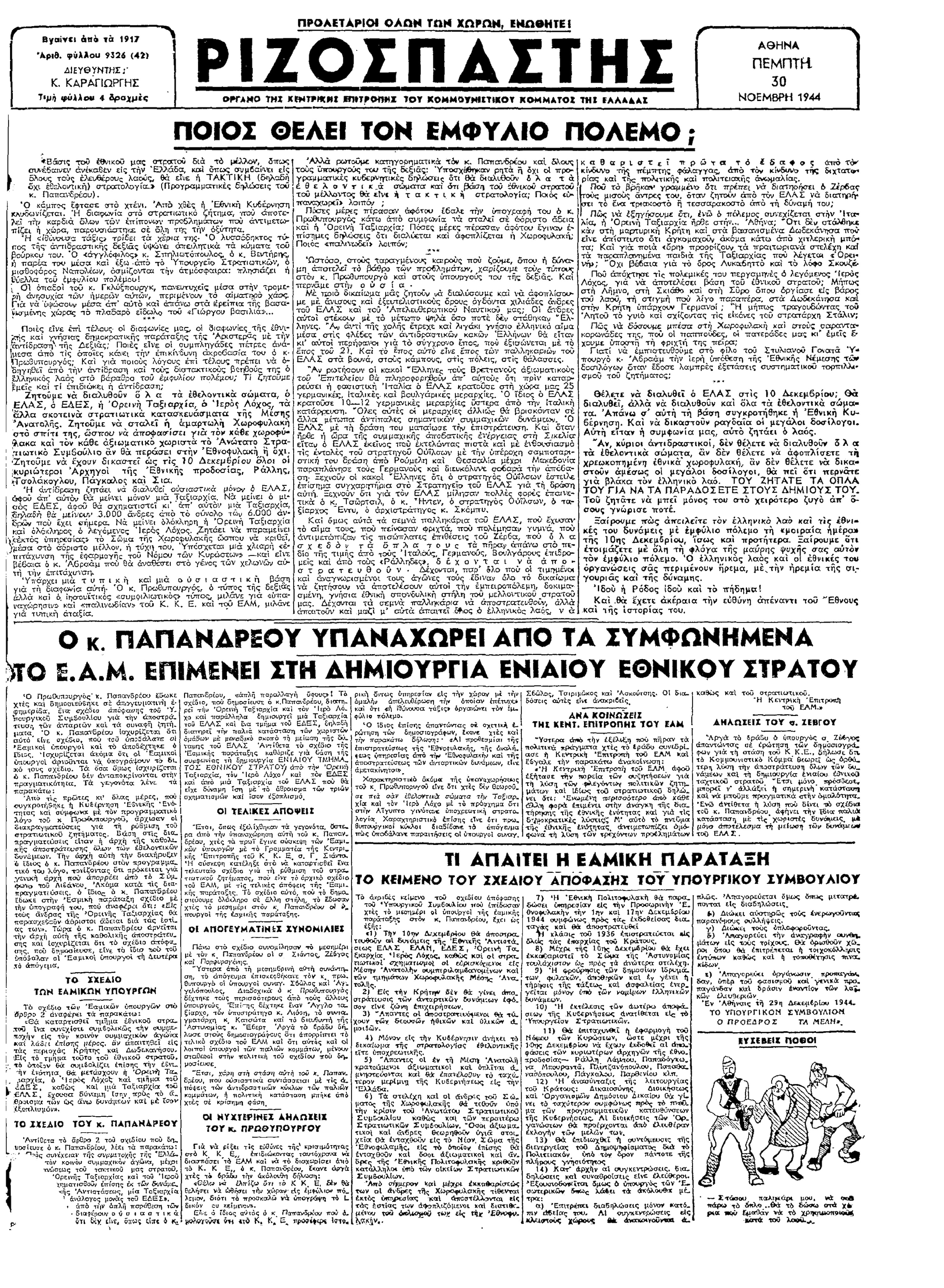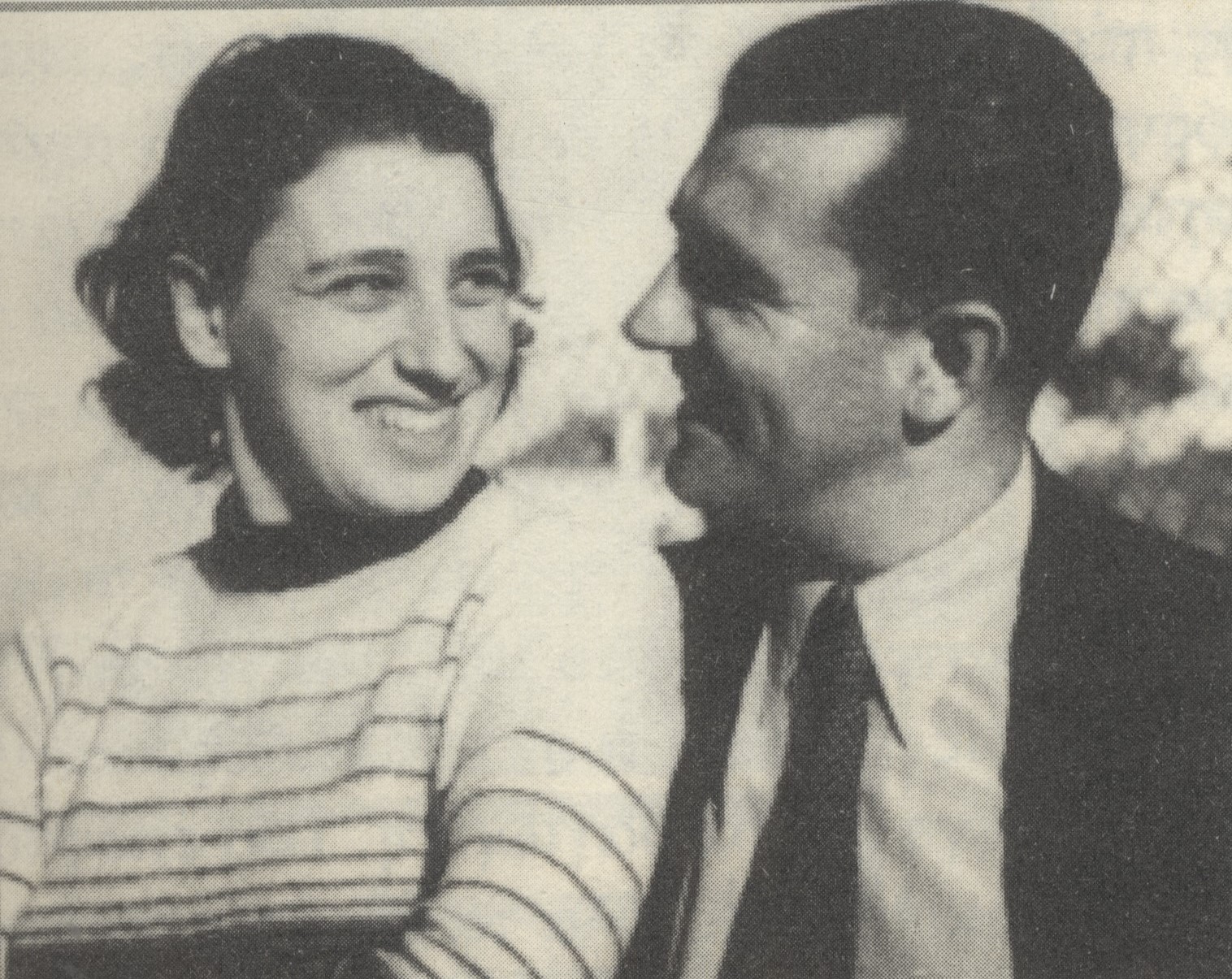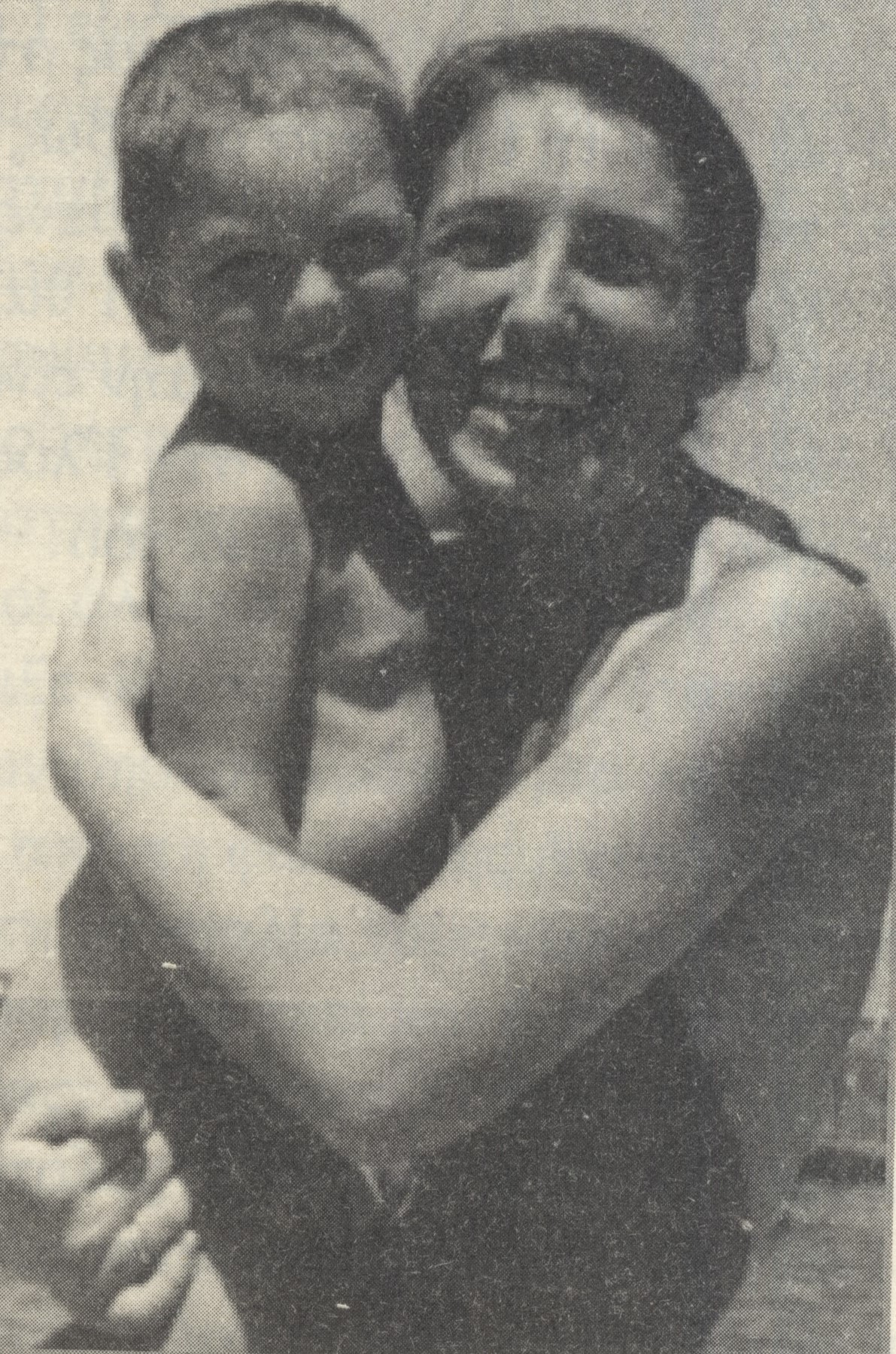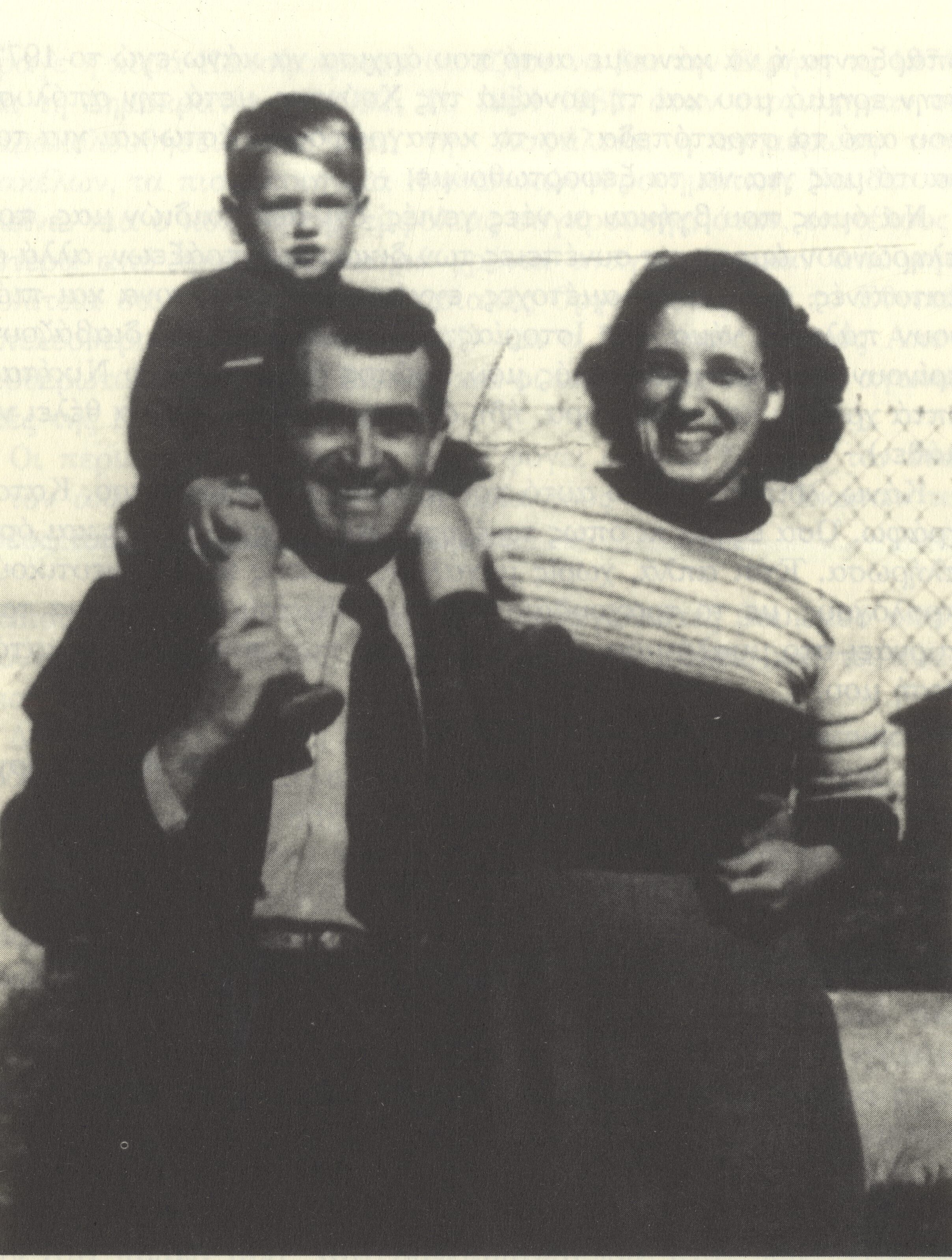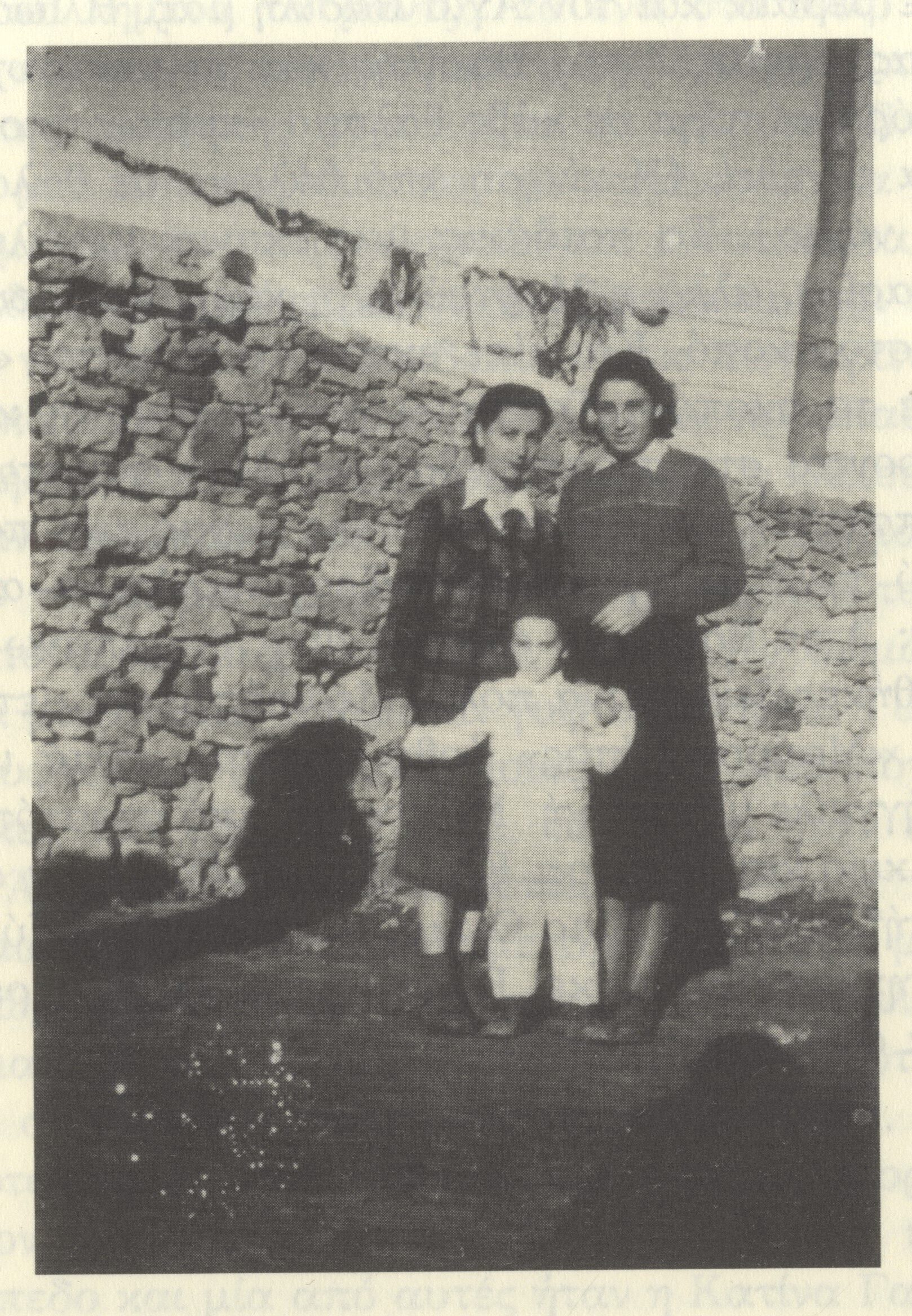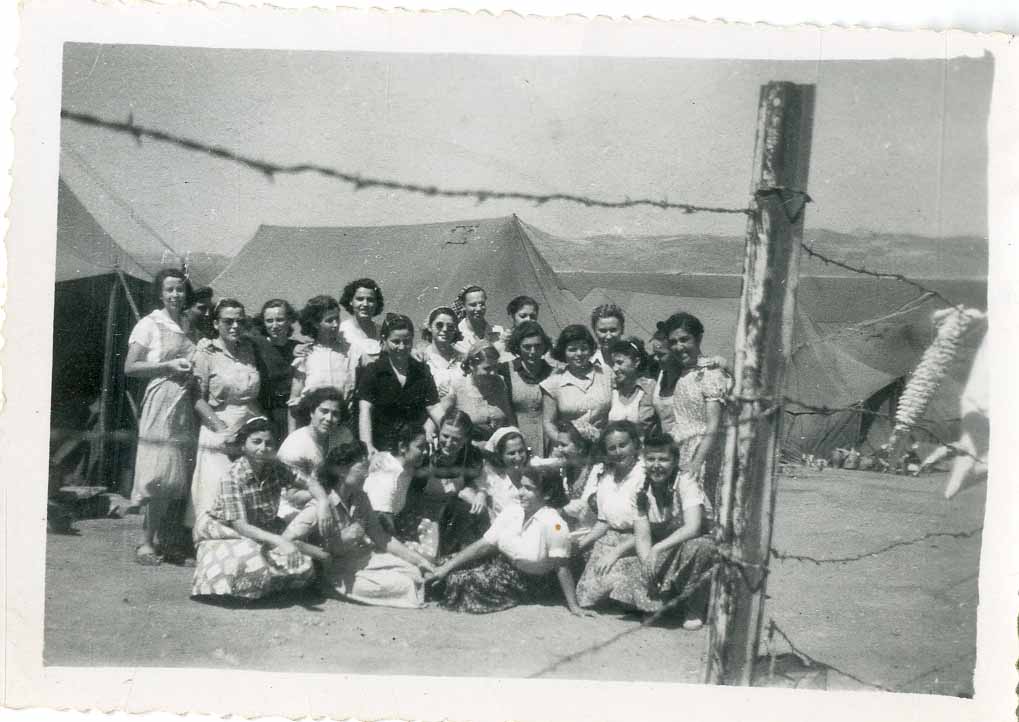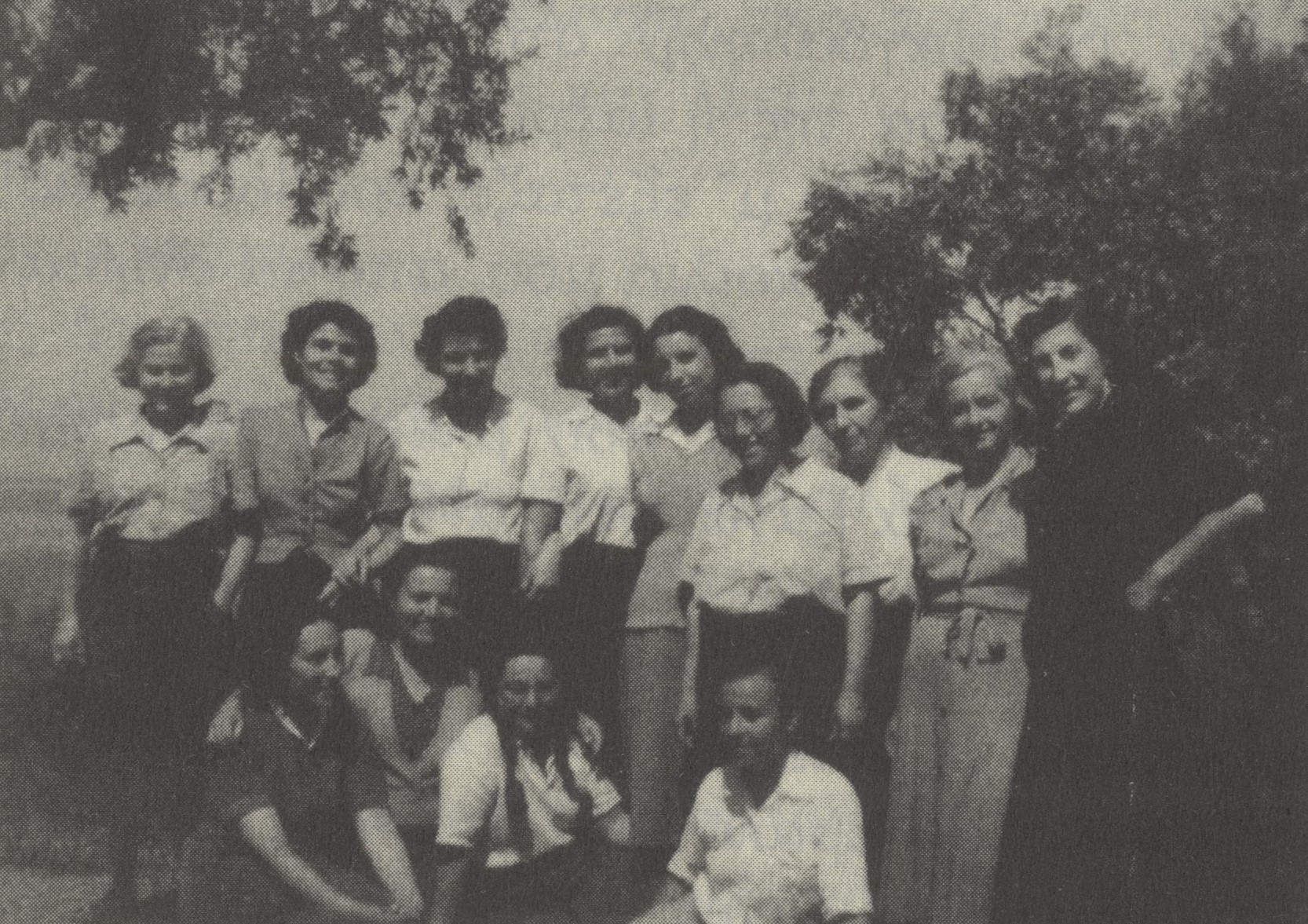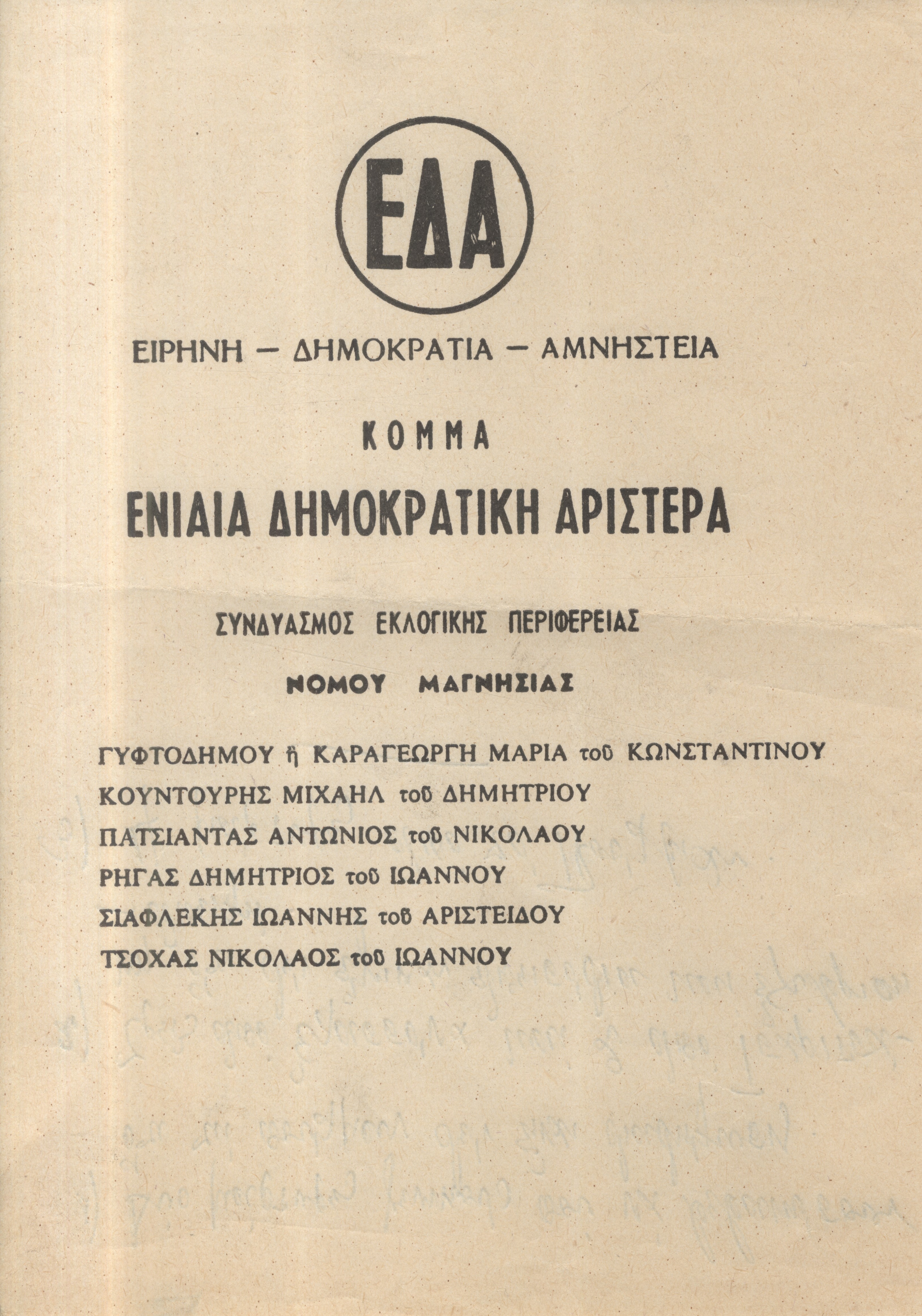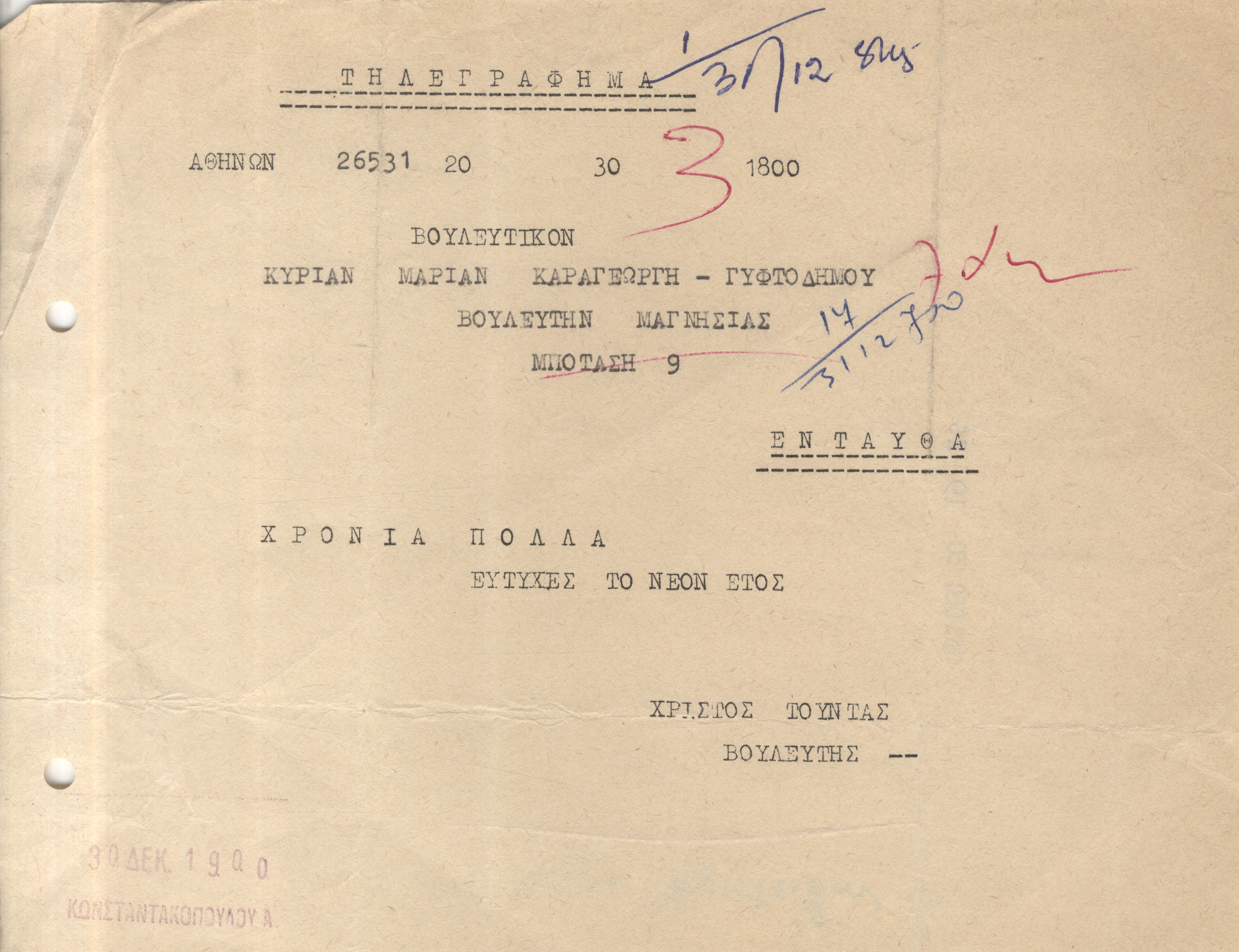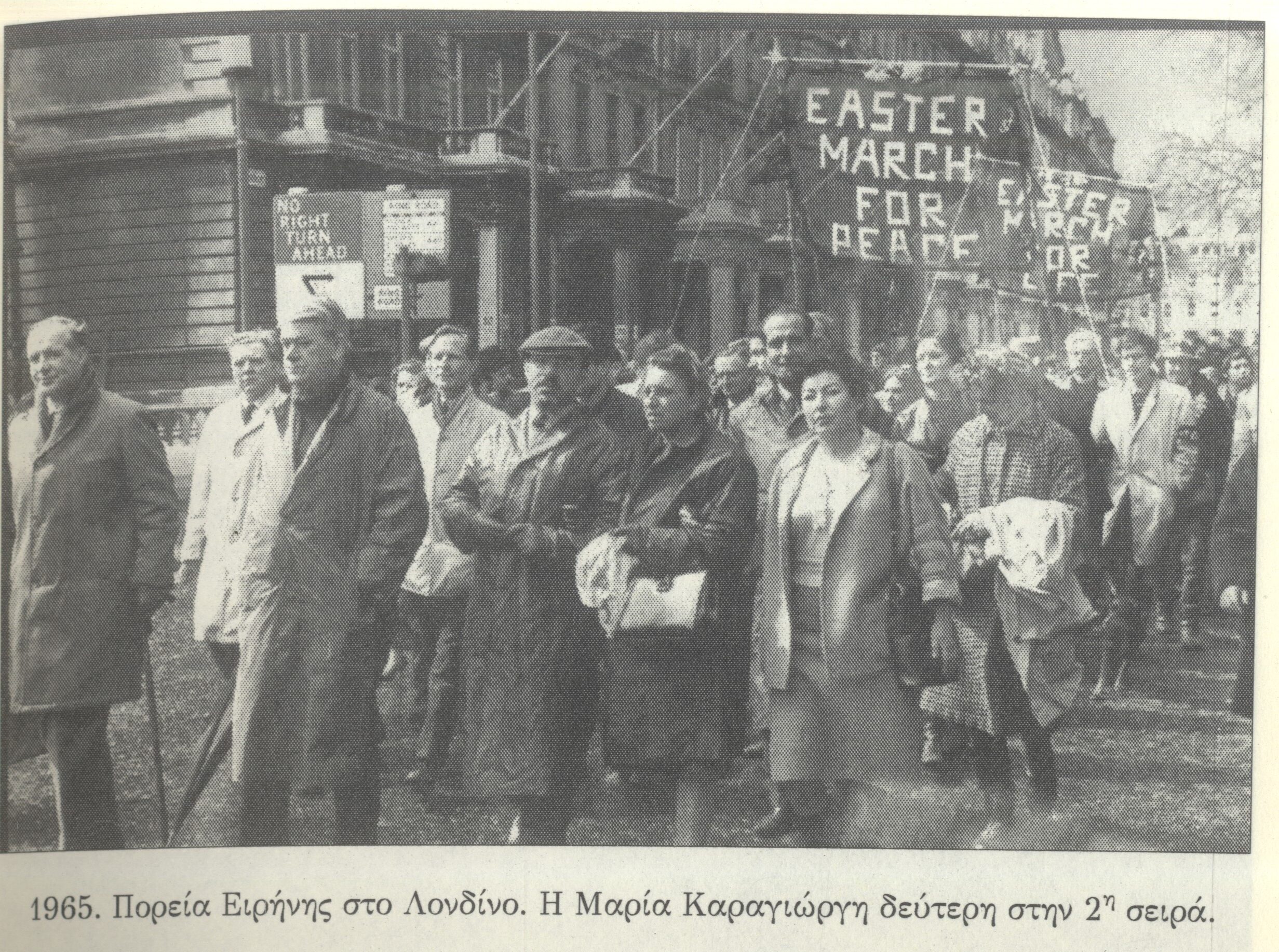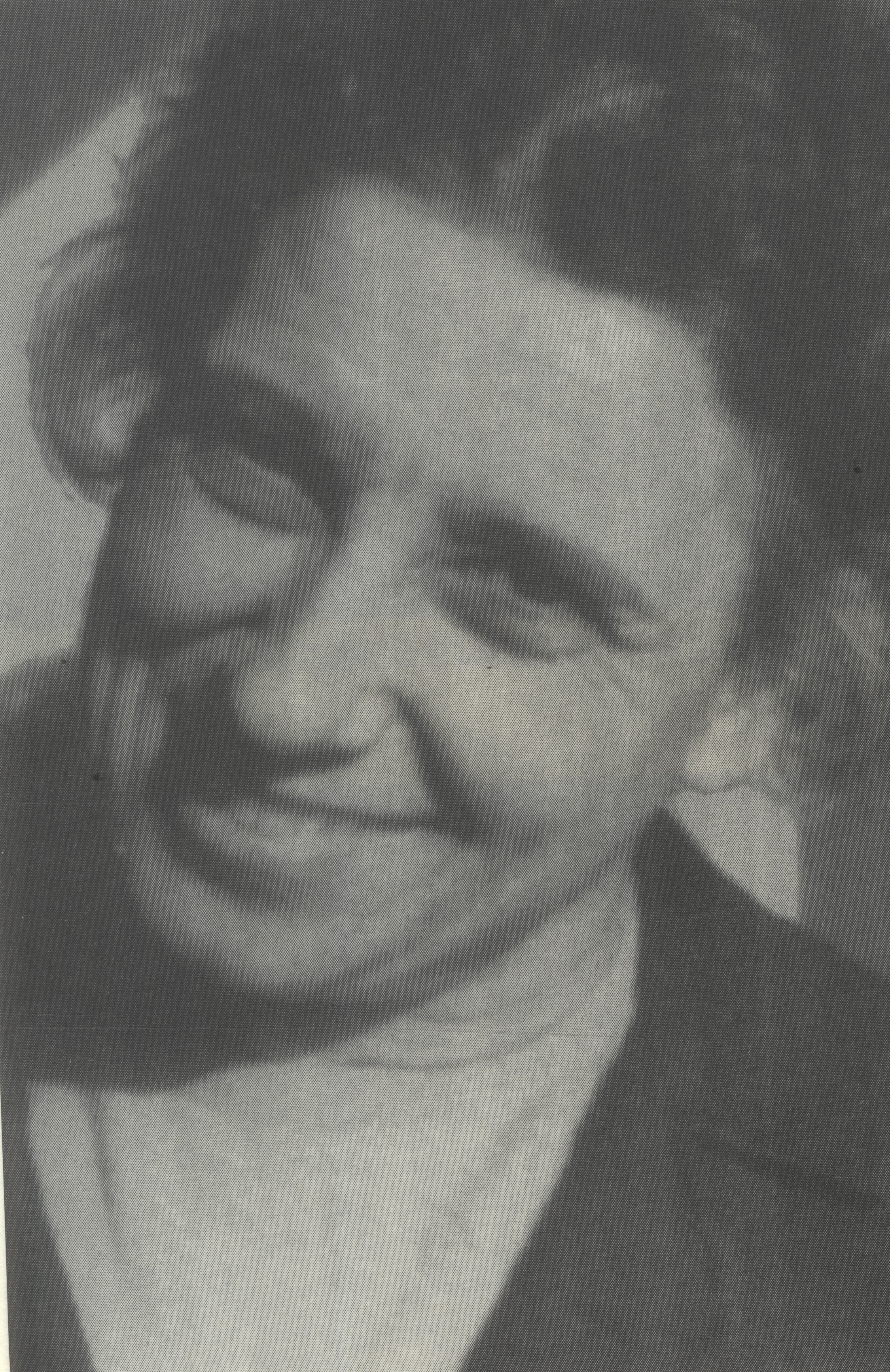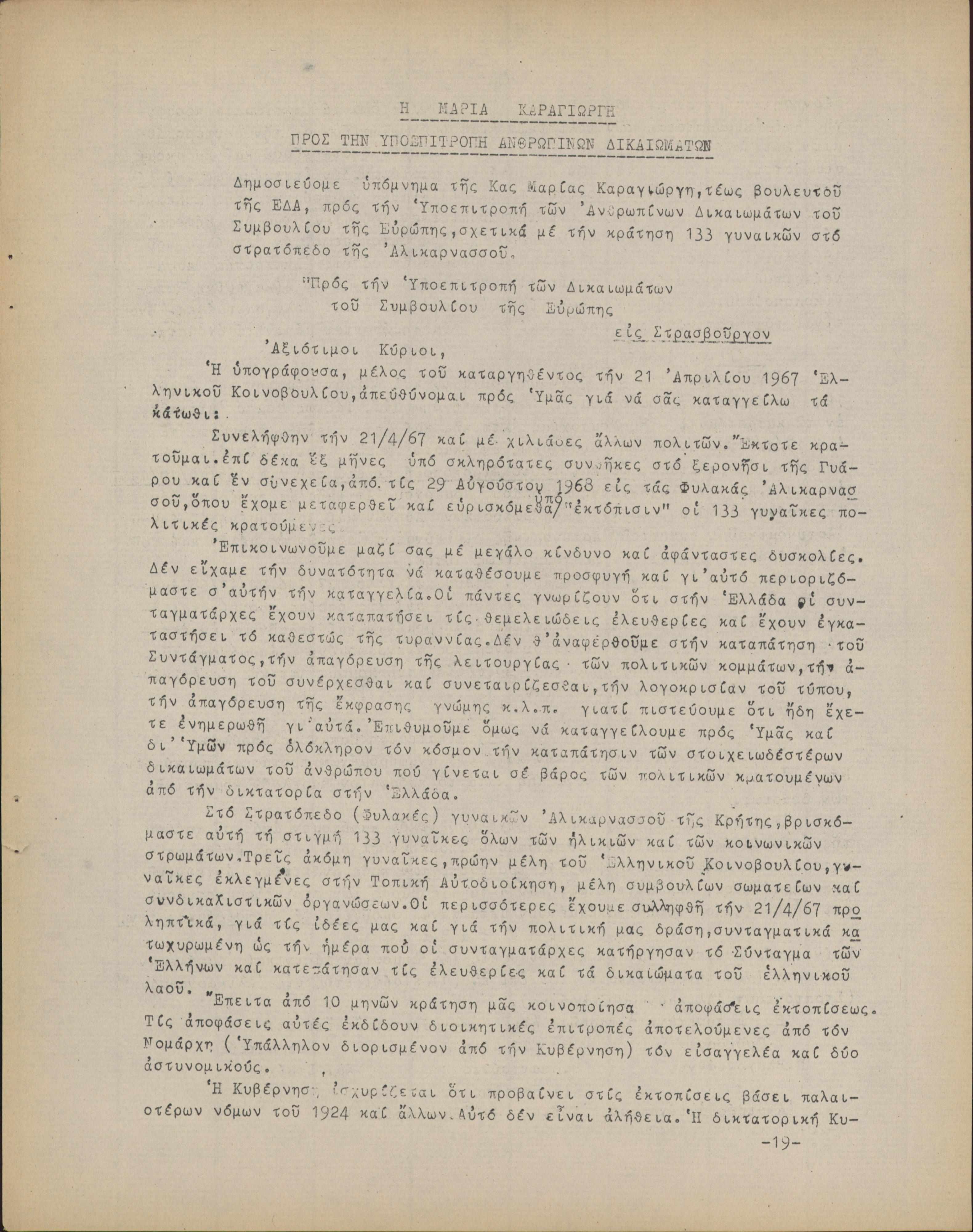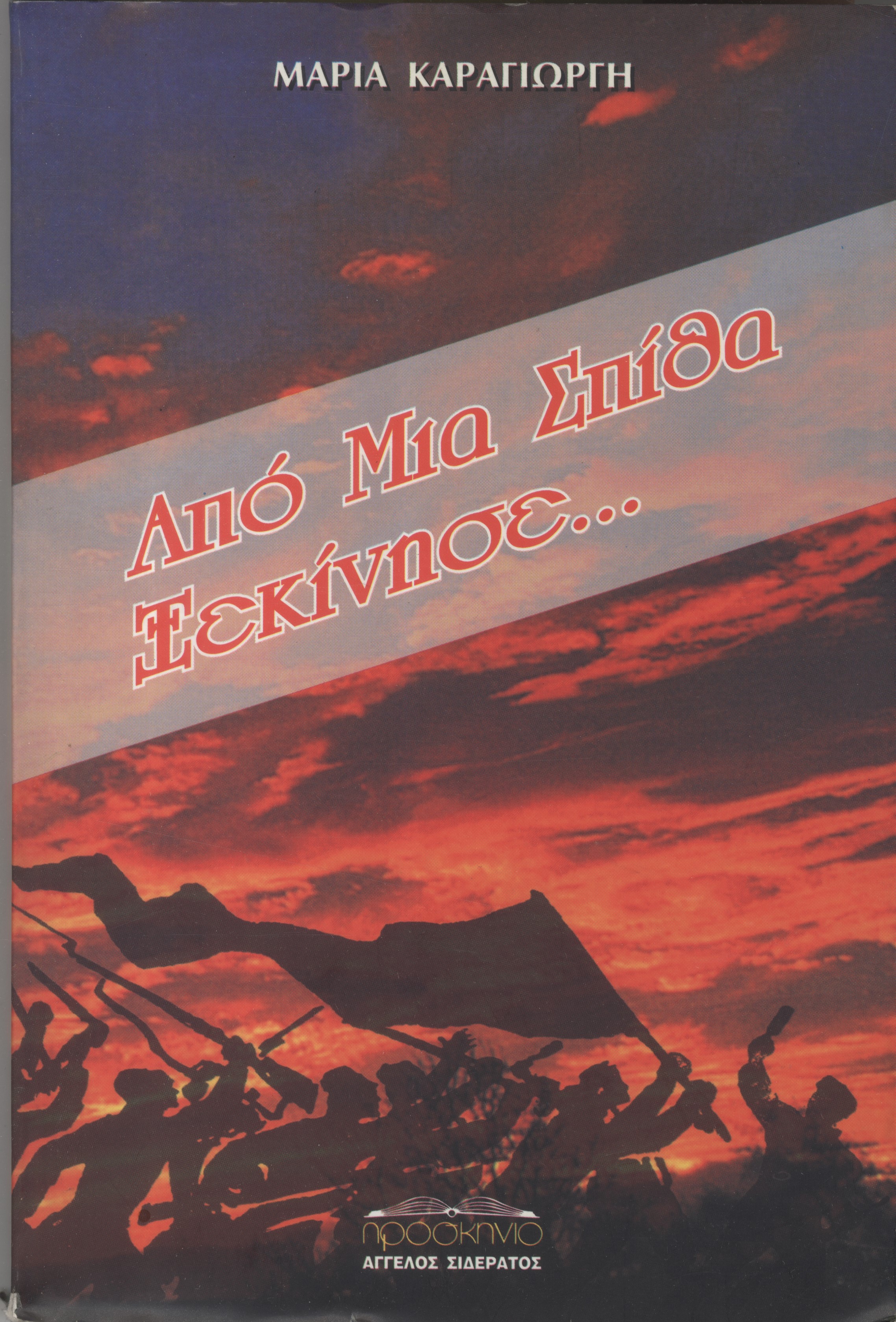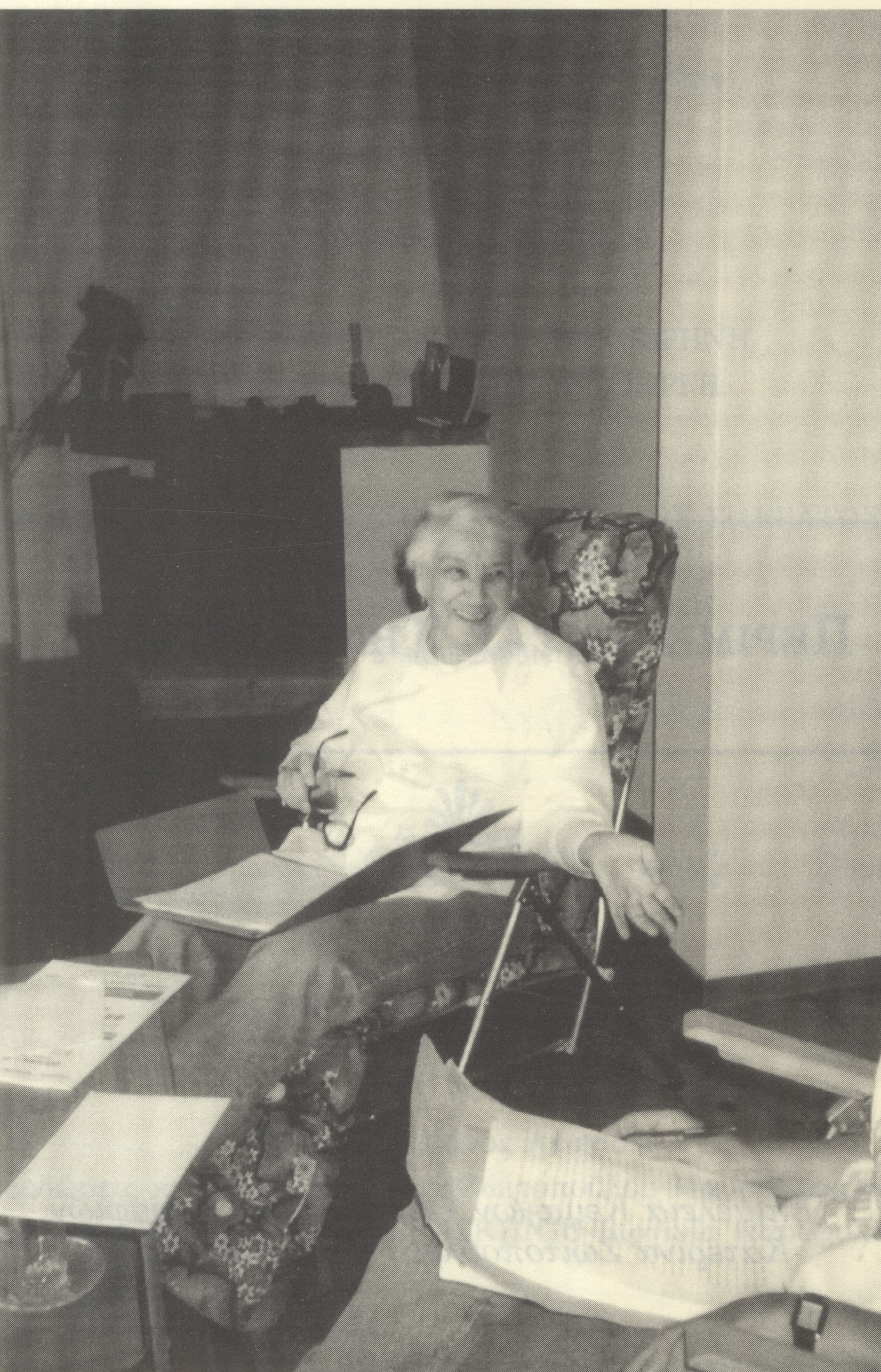War and Resistance
She was a founding member and secretary of the women’s resistance group “Free Girl” [Lefteri Nea]. “This organization will be for the young girl, the New Girl born out of this fire of resistance and in the new world that will be created. That’s why we named her Free Girl. We proceeded quickly to form the new organization, we elected committees, organs and I was elected secretary”. Following her husband, K. Karagiorgis, who took over the organization of the resistance movement in Thessaly in December 1942, Maria settled in Larissa. There she joined the Office of the City Committee of Larissa and undertook to organise the villages in the plain of Larissa. She reports on this experience that had thrilled her: “I must say now that I fell in love with the plain of Larissa. My soul has remained in that summer of ’43. I went to the villages by cart or on foot, and wherever I went the people welcomed me with open arms because they saw in me all the struggle that was going on and all the future that was opening up before them. (…) I spent a wonderful summer like that. Traveling by night and seeing people by day. I slept in the cart. (…) I would tell the news from the various fronts, what was happening in the West, what was happening in the East (…), to let them know how the war was going. After I told all that, it was their turn. They would start telling all the details about their life and the general day-to-day affairs”.
In the meantime, Maria got pregnant and was transferred to Athens for a short period of time in order to give birth. In April 1944, her son Alexis was born. Then she returned to Thessaly and took on the duties of the resistance struggle again.
Maria Karagiorgi became responsible for the organisation of the women of Thessaly and in July 1944 a meeting of the women of Thessaly was held in which about two hundred women from all the surrounding areas participated. “Young, middle-aged, old women, some dressed in European dresses, some in their skirts, others in their brilliant Karagunian costumes (…) One of them came up to the podium, took the speech from the conference chairman, spoke comfortably, all the women were in front of her (….) And what a good thing they were saying (…) they were taking off their lives of ‘unhappiness’, humiliations, fatigue, hardships, problems, pains and expressing longings for the future”. Under the responsibility of Maria, they also published a women’s newspaper “Storm” [Thyella], which had a full description of the conference and the wide participation of women in it.

